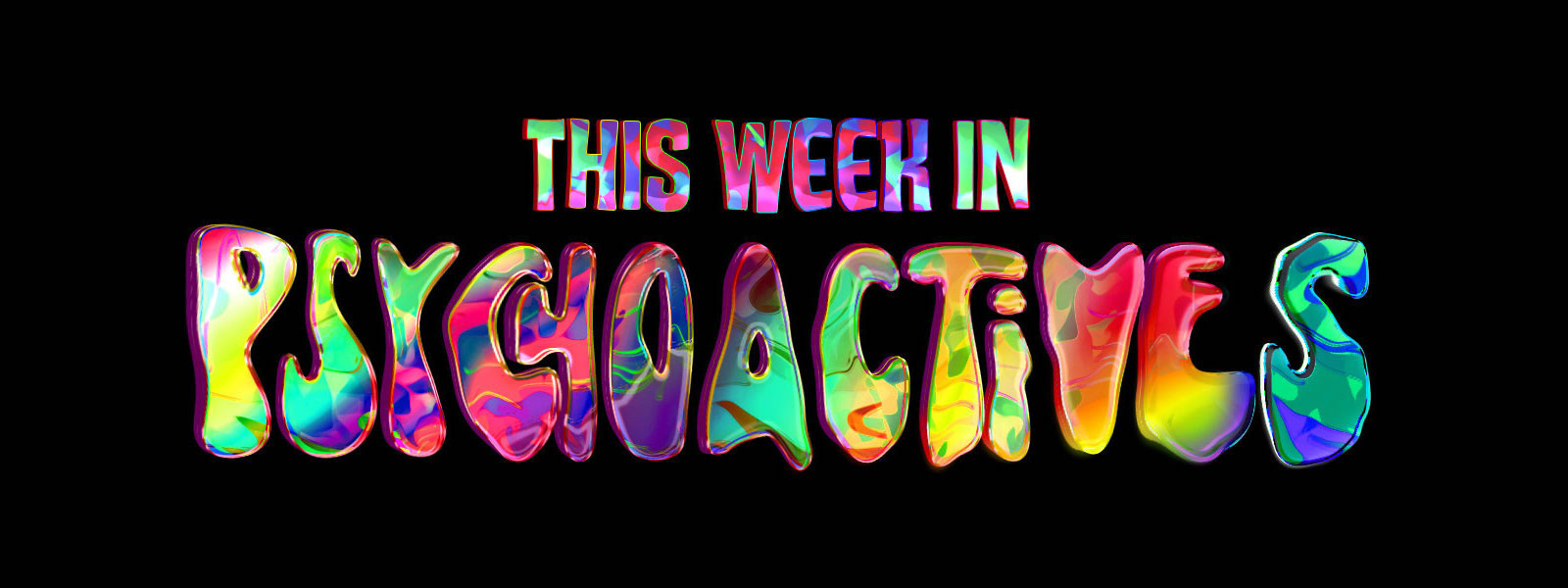Cannabis
Malta becomes first EU country to legalise cannabis for personal use (Euronews)
St. Louis Mayor Signs Bill To Decriminalize Marijuana Possession And Cultivation (Marijuana Moment)
No Fentanyl Found in Cannabis After All, Vermont Police Say (High Times)
Viral story shared across social media about two teens overdosing on fentanyl-laced marijuana in Springfield was untrue (MassLive)
Ministry pushes full cannabis legalisation (Bangkok Post)
Government-Funded Study Shows Unprecedented Decline in Marijuana Use By Young People (NORML)
Pfizer to Acquire Pharmaceutical Company Testing Cannabinoid Treatment (High Times)
Heavy metals in cannabis plants could affect human health, study finds (New Atlas)
Rhode Island Legalization Bill Set for Early 2022 Introduction (High Times)
Baltimore: City Officials Move to Abolish Pre-Employment Drug Screens for Many Public Employees (NORML)
Smoking CBD-Rich Marijuana Has ‘No Significant Impact’ On Driving Ability, Study Finds (Marijuana Moment)
Cannabis use could cause harmful drug interactions (ScienceDaily)
LSD
Cary Grant Is High on LSD in ‘Flying Over Sunset.’ Everyone Else Has a Bad Trip. (The Daily Beast)
PharmaTher Announces Positive Research Results for LSD Microneedle Patch (BioSpace)
MindMed Initiates Phase 2a LSD Trial for the Treatment of Adult ADHD (Psilocybin Alpha)
Magic Mushrooms
New Filing Challenges Compass Pathways’ Infamous Patent on Synthetic Psilocybin (VICE)
Psilocybin-assisted psychotherapy reduces loss of meaning and suicidal ideation among cancer patients (PsyPost)
With health care workers hurting, a doctor wants to see if a psychedelic can help (NBC News)
COMPASS Pathways announces positive outcome of 25mg COMP360 psilocybin therapy as adjunct to SSRI antidepressants in open-label treatment-resistant depression study (Psilocybin Alpha)
More patients granted psilocybin exemption by federal government (CBC)
Warning: Oregon Legalized Supported Adult Use of Psilocybin, Not Psychedelic Therapy (Chacruna)
New York Lawmaker Files Bill To Legalize Medical Psilocybin Treatments, With Focus On First Responders And Veterans (Marijuana Moment)
This Trippy New Book Takes You Through Modern Mushroom History—With Cartoons (DoubleBlind)
Psyched Wellness Announces Path to Market for AME-1-derived Products in the USA (Psilocybin Alpha)
Silo Wellness announces series of psilocybin retreats in Jamaica (Globetrender)
HAVN Life Successfully Exports Psilocybin from Jamaica Facility into the U.S. for Research Purposes (Psilocybin Alpha)
MDMA
The Big Return – and Decline in Quality – of MDMA (VICE)
Latest trials confirm the benefits of MDMA – the drug in ecstasy – for treating PTSD (The Conversation)
MDMA could soon be used to treat PTSD according to physicians (Mixmag)
Ayahuasca
Study links the ceremonial use of ayahuasca to robust reductions in neuroticism (PsyPost)
Educating Gringos in Shipibo Ways (Chacruna)
Esther Jean Langdon: Half a Century of Research About Shamanism and Ayahuasca (Chacruna)
Novel Psychoactive Substances
Cybin Awarded Notice of Allowance from U.S. Patent and Trademark Office for CYB004 (Deuterated Psychedelic Tryptamine) for the Treatment of Anxiety Disorders (Psilocybin Alpha)
atai Life Sciences Announces Successful Outcome of Phase 2a Biomarker Trial of RL-007 in Cognitive Impairment Associated with Schizophrenia (Psilocybin Alpha)
Synthetic Cannabinoids
Tainted synthetic marijuana linked to severe bleeding cases in Florida (Live Science)
Miscellaneous
Psychedelics Rejected for Therapeutic Use in Australia (VICE)
Can a Values-Centered Psychedelic Ecosystem Effectively Compete? (Lucid News)
Mind Medicine Australia’s Response to the Announcement of the TGA NOT to Reschedule the Medical Use of MDMA for Treatment Resistant PTSD and the Medical Use of Psilocybin for Treatment Resistant Depression as Part of Therapy. (Mind Medicine Australia)
How Do Psychedelics Change Your Personality? These Researchers Tried To Find Out (IFLScience)
‘This isn’t the 60s again’: psychedelics business takes off amid culture clash (The Guardian)
2022 Global Drug Survey: Help make it bigger than ever for its 10 year anniversary (TalkingDrugs)
Most Addiction Specialists Support Legalized Therapeutic Psychedelics (Medscape)
Psychedelic-Assisted Therapy on the Rise in VA Hospitals (Lucid News)
Psychedelics and Substance Use Disorder: 4000 BCE to Present Day (Psychedelic Science Review)
Many Indians Are Experimenting With Psychedelics, Other Drugs to Deal With Mental Health Issues (The Swaddle)
Editor’s Choice Award 2021-Best Study on Psychedelics and Neuroplasticity (Psychedelic Science Review)
atai Impact Establishes the atai Fellowship Fund in Psychedelic Neuroscience with Massachusetts General Hospital’s Center for the Neuroscience of Psychedelics (Psilocybin Alpha)
How to Start Microdosing Psychedelics (DoubleBlind)
Understanding HPPD to Prioritize Harm Reduction of a Very Real Psychedelic Risk (Psychedelic Spotlight)
Think Wilder is reader-supported. If you enjoyed this week’s update, please consider helping out by becoming a patron, making a one-time donation, or sharing this post with a friend. Thank you for your support.
Disclaimer: "This Week in Psychedelics" does not censor or analyze the news links presented here. The purpose of this column is solely to catalog how psychedelics are presented by the mass media, which includes everything from the latest scientific research to misinformation.









